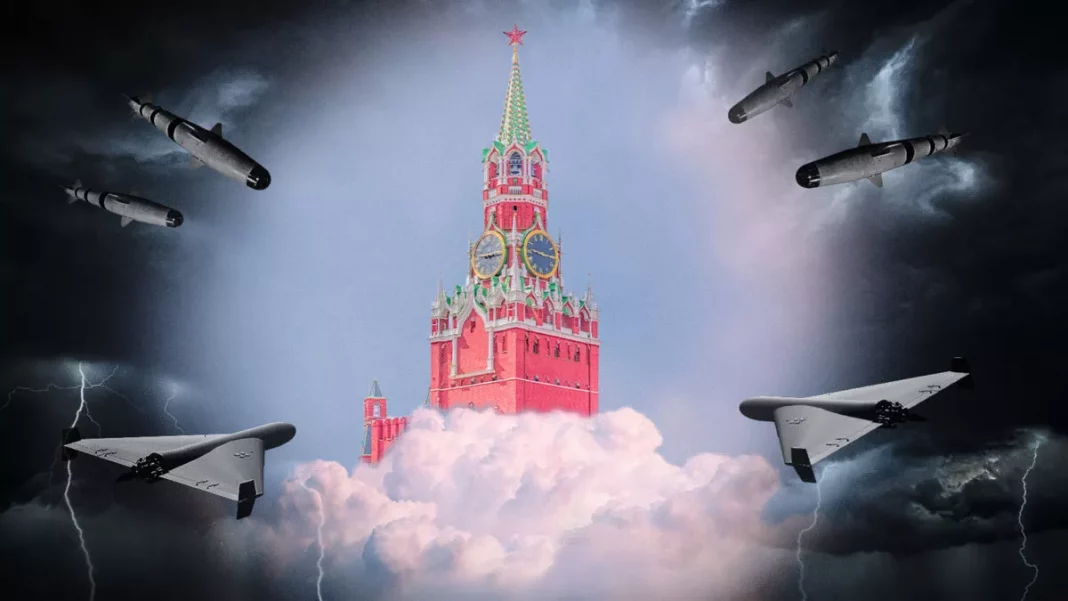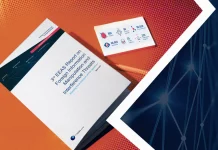By EUvsDisinfo
In Georgia, the Georgian parliament passed the controversial ‘foreign agents’ law, triggering widespread demonstrations in the streets of Tbilisi. Protests were met with unwarranted police brutality that has since been condemned by the EU. The Kremlin’s response was as predictable as always – accusing the West of inciting unrest and slinging unfounded allegations about ‘double standards.’ Don’t be deceived by these lies. Read in more detail about the ongoing pro-Kremlin disinformation campaign in Georgia here.
Meanwhile, a new era has dawned in the land of the Kremlin, promising a bountiful future to all who will swear fealty to the glorious leader. Admittedly, the Great Patriotic War still rages on to ‘denazify’ Ukraine, and aggressive NATO troops are trying to encircle Fortress Russia, but the economy is booming and the West is crumbling so rapidly that judges from Poland are escaping to Belarus to expose the sorry state of affairs at home. This description may feel like it’s coming from an alternate reality, but this was the story the Kremlin’s disinformation mouthpieces were touting last week. Let’s unravel it.
A new (old) wind is blowing
Elections and an ensuing change of government can be significant turning points for the political course of a country. In Russia, this is evidently not so, and elections are a turning point to more of the same, while the change of government resembles a shadowy game of musical chairs. And yet these moments are crucial to set the stage for the Kremlin’s disinformation spectacle. They provide the opportunity for the regime to legitimise itself in the eyes of those it seeks to deceive. Two recent events – Putin’s inauguration ceremony and the 9 May parade – were exactly such moments.
Of course, the speeches in those events were full of Kremlin newspeak and historical revisionism. We have already exposed them here, here and here. But let’s have a look at how the pro-Kremlin disinformation ecosystem reverberates with the sound of Putin’s lies and to what end.
Long may he reign
The inauguration ceremony brought forth an essentially singular message. Stability, prosperity, and dignity for the Russian people are only possible under Putin’s reign. And as a caring and benevolent Father of the Nation, Putin has a vision to bring about a veritable Garden of Eden by 2030. In case he should need more time, there is also a plan through 2036. While these stories are seemingly about a bright and prosperous future, they also solidify the idea that Putin is an irreplaceable, permanent fixture in the everyday life in Russia. And he’s only one who can protect Russia from the looming NATO threat.
To add onto the image of a wise and benevolent leader, pro-Kremlin outlets also sought to amplify a seeming openness to dialogue with the West to avoid a ‘further escalation of aggression’. This is a classic Kremlin role-reversal information manipulation tactic – to portray Russia as benign and peace-loving, essentially employing the narrative of peace in the service of war.
Looking for friends in faraway places
On 9 May, apart from the usual West-bashing, historical revisionism, and chest-thumping about Russia’s holy mission to rid the world of evil Nazis, pro-Kremlin disinformation peddlers were also keen to create an image of Russia surrounded by friends and allies from near and far. Particularly when showcasing the Kremlin’s allegedly close ties with Africa and Latin America, or reminding the world of its ‘sphere of influence’ in Central Asia, while downplaying the growing rift with Armenia. They don’t mince words. The Kremlin would have the world believe that Russia wants to establish a democratic world order.
Damned if you do, damned if you don’t
To juxtapose the dainty vision of a friendly and welcoming Russia, surrounded by friends, pro-Kremlin outlets also zoomed in on the empty seats left by ‘unfriendly nations’. Curiously, it would seem that these ‘unfriendly counties’ (Kremlin-speak for anyone supporting Ukraine) are between a rock and a hard place. According to the Kremlin, if they attend these propaganda spectacles in Moscow, they expose the crumbling façade of the West. If they don’t show up, they are undiplomatic and disinterested in peace. Only the Kremlin deals in such categorical absolutes, but the truth is that most of these ‘unfriendly nations’ would rather have their teeth pulled sans anaesthesia than attend the Kremin’s propaganda circus.
Plenty of roubles to go around
To reinforce the image of a glorious future awaiting Russia that lies just around the corner, the pro-Kremlin disinformation ecosystem also disproportionately focussed on the perceived well-being of the Russian economy, implicitly linking it to Putin’s prudent reign. Admittedly, the Russian economy is outperforming expectations, at least in the short run, and the Kremlin is quick to push the narrative that the country is reaping record oil and gas profits and insinuating what that might mean for the Russian people.
Meanwhile, outlets use government appointments in Russia to claim that Putin has heard the plight of his people and is shifting to a new economic model to develop and strengthen the Russian economy. Well, a new model might be coming indeed, but it remains to be seen if it will bring about the promised land of milk and honey, or will it be used to further militarise the nation to fight a protracted war.
On the lookout for Judas
Finally, the Kremlin likes to use any opportunity it gets to try to discredit the West with screaming ‘we told you so‘ at the top of their lungs. Such a lamentable occasion arouse when a disgraced former judge from Poland, Tomasz Szmydt, escaped to neighbouring Belarus to seek ‘political asylum’. Or course, pro-Kremlin outlets, especially those operating in Belarus, were all too happy to amplify the pro-Kremlin lies parroted by Szmydt about the US allegedly trying to drag Poland into a war with Belarus and Russia, Ukraine committing war crimes against civilians, and the West standing in the way of peace.
Needless to say, this is not the first time the Kremlin has co-opted willing or misguided voices to lend ‘Western credibility’ to its disinformation narratives. Having people like Scott Ritter, Seymour Hersh, or John Mearsheimer repeat pro-Kremlin disinformation enables the Kremlin to create an impression of ‘lifting the curtain’ and ‘exposing the truth’. But ultimately, they merely pray on people’s tendency to engage with conspiracy theories. Don’t be deceived.
Also blinking red on EUvsDisinfo’s radar:
- For the Kremlin, elections are not a democratic expression of the people’s will, they are battlefields for information manipulation. The upcoming European Elections are no exception and so pro-Kremlin outlets have set out to undermine democratic processes and pollute the public discourse with unsubstantiated disinformation, such as falsely claiming that the EU introduced censorship ahead of the European Parliament elections. These claims followed the decisions of the European Parliament limiting the scale of Russian influence ahead of the elections and sought to create the perception that the EU is exaggerating Russian interference for political reasons. In truth, combating Russian disinformation is not an attack on free speech. According to the annual World Press Freedom Index, EU countries have the highest freedom of speech ratings and respect for independent journalism.
- The Kremlin’s obsession with Satan is well-known and regularly bubbles up in the pro-Kremlin disinformation ecosystem like a poorly reheated yesterday’s soup. It’s that time again to proclaim that Russia launched the Special Military Operation to fight the Antichrist forces ruling Ukraine because only Russia can delay a global decent into Satanism. These ludicrous claims are an obvious attempt to vilify Ukraine to deflect attention away from Russia’s aggression against it and to portray Russia as the holy defender of ‘traditional values’.
- Another periodically refurbished pro-Kremlin disinformation narrative is the claim that black markets are flooded with Western, Ukraine-bound arms. Curiously, such accusations tend to resurface every time Western countries express their ironclad commitment to Ukraine. In fact, this narrative is a part of a broad disinformation campaign against arm deliveries to Ukraine, and is often tailored to current events, from criminal turf wars in Scandinavia to riots in France. Needless to say, no evidence is ever provided to back up these claims. On the contrary, multiple Western governments have implemented oversight procedures for arms transfers and Ukrainian supervisors also work to prevent illegal arms diversion as it would harm future aid deliveries.
By EUvsDisinfo





